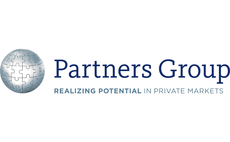
Q&A: Pacific Equity Partners' Tim Sims
Tim Sims, co-founder and managing director of Pacific Equity Partners, argues that Australia’s strong fundamentals make it an attractive market for buyouts, while perceptions of an over-reliance on China are misplaced
Q: Your most recent deal, Spotless, was a take-private. How significant are lower public market valuations to deal-making at present?
A: Traditionally public to private deals have not been that common in Australia, but there has been significant contraction - about 30% - in the value that the market places on future earnings. That in itself opens up its own value opportunities. In the background, though, the big value changes have been driven by a number of factors. Immediately after the financial crisis more than 30% of public shares in Australia were owned by overseas institutions and many of these investors left in a hurry. Poor stock market performance then focussed attention on high levels of equity concentration among the local institutions and this concern was compounded by a shift in the flow of net funds as baby boomers for the first time began to retire. Finally, there has been a shift from equities to bank deposits among retail investors.
Q: How does Australia compare to other markets for buyout opportunities?
A: Australasia as a sub region is significantly larger than other Asian markets when it comes to LBO activity. Between 2005 and 2011, total PE investment in Australia was $74 billion and 80% of that was LBOs. Overall M&A volume in Australia is disproportionally high for an economy of this size. This is because we were a largely regulated market until the mid 1980s and so competition for efficient asset ownership began relatively recently. On the other hand, the proportion of those transactions that are PE-sponsored is much lower than you would expect because PE didn't arrive until the late 1990s. In 2011, only 11% of M&A volume involved private equity compared to 28% in the US. There is a lot of catch-up going on and this offers some interesting opportunities for the patient and the disciplined. Some of our most recent deals we have stalked for more than two years.
Q: How significant are macroeconomic considerations?
A: Australian GDP growth is consistently a couple of hundred basis points above other developed economies and this is against a background of population growth, high interest rate flexibility, strong banks and federal debt of 10% of GDP compared to 84% in the US. Looking at things from a longer-term perspective, obligations including unfunded liabilities in the US are in excess of 600% of GDP and over 500% in Germany, while in Australia that number is only 15%. If you were trying to set policy for advanced old world economies, you'd have to consider major tax increases, higher interest rates and winding back obligations to citizens. By comparison, the outlook for Australia is very positive.
Q: But the country is often said to be highly dependent on Chinese growth...
A: China is helpful, but it is not consistent with the data to be concerned that a slowdown in Chinese growth will have a disproportionately negative impact on the Australian economy. The incremental portion of growth that comes out of China between normal years and boom years currently makes up about 2-3% of GDP. The total proportion is 6%. If there were zero exports to China next year, it would cost Australia a year-and-a-half of growth. Furthermore, when you look at how crude steel intensity grew in South Korea, Taiwan and Japan, there was sustained supernormal growth for 30-40 years. China and India are only at the beginning of that experience.
Q: Despite these strong fundamentals, do you feel that Australian GPs raised too much money too quickly in previous cycle?
A: There are a number of distinct tiers in the market. There is a group of local funds that are A$1-1.5 billion, so they can risk A$200 million of equity in a single deal and at current leverage levels that's a A$400 million enterprise valuation deal. PEP are the only domestically based fund structured to do deals in the A$300 million to A$1 billion-plus range and then you have international players who to date have rarely gone below A$1.2 billion. In the domestic middle market, apart from 2009, you've had 15-20 deals per year since 2004 and transaction size is increasing. On the other hand in the large deal space there has been volatility - one deal in 2005, five deals in 2006, three deals in 2007, one deal in 2008, and one deal in 2009 - and most of them haven't performed well.
Q: But wasn't PEP's fourth fund abnormally large compared to others in the market?
A: It was A$2.7 billion of core and A$1.3 billion of co-invest. The most interesting businesses in Australasia are in leadership positions and they tend to have enterprise valuations of A$250 million to A$1 billion. To build a portfolio of these businesses, you have traditionally needed a A$3-4 billion pool of capital to run over a 5-6 year investment period. PEP have deployed on average A$700 million in equity a year every year since 2006 and that number will be closer to A$850 million this year. The idea that the current fund is too big for the market is easy to assume but is not borne out by the data. That said, I think our next fund will be of more modest size, based on pursuing the same kind of deals but over a shorter deployment period. We believe this will be well received in the current investor environment - a logical and distinctive strategy with a history of high returns for lower absolute commitment over a shorter period of time.
Latest News
Asian GPs slow implementation of ESG policies - survey
Asia-based private equity firms are assigning more dedicated resources to environment, social, and governance (ESG) programmes, but policy changes have slowed in the past 12 months, in part due to concerns raised internally and by LPs, according to a...
Singapore fintech start-up LXA gets $10m seed round
New Enterprise Associates (NEA) has led a USD 10m seed round for Singapore’s LXA, a financial technology start-up launched by a former Asia senior executive at The Blackstone Group.
India's InCred announces $60m round, claims unicorn status
Indian non-bank lender InCred Financial Services said it has received INR 5bn (USD 60m) at a valuation of at least USD 1bn from unnamed investors including “a global private equity fund.”
Insight leads $50m round for Australia's Roller
Insight Partners has led a USD 50m round for Australia’s Roller, a venue management software provider specializing in family fun parks.








